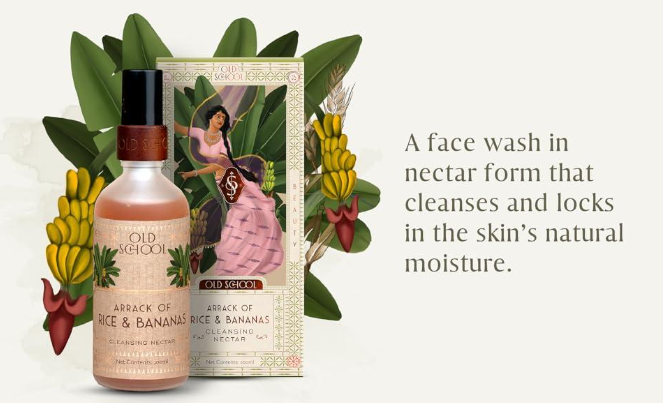In recent years, the beauty world has been shifting toward natural skin care products, with more people becoming aware of the benefits of avoiding harsh chemicals and embracing ingredients derived from nature. Among the essentials in any skincare routine, a natural moisturiser plays a pivotal role in keeping your skin hydrated, nourished, and protected. However, not all moisturisers are created equal — especially when it comes to different skin types.
Choosing the right natural face moisturiser for your skin type can make the difference between a radiant complexion and one that feels irritated, oily, or dry. Whether your skin is oily, dry, combination, sensitive, or acne-prone, there’s a perfect natural formula for you. In this article, we’ll explore how to identify your skin type, what to look for in natural ingredients, and how to select the best product tailored to your skin’s unique needs.
Why Choose a Natural Moisturiser?
Before diving into skin types, let’s address why natural moisturisers are gaining popularity. Many conventional moisturisers contain synthetic fragrances, parabens, sulfates, and petrochemicals that may irritate the skin or cause long-term harm. In contrast, natural moisturisers are typically made with plant-based ingredients, essential oils, and organic extracts that are gentler on the skin and environmentally friendly.
By switching to natural skin care products, you reduce your exposure to toxins and support sustainability, all while giving your skin nourishing benefits derived from nature.
Step 1: Identify Your Skin Type
The first step in choosing the right moisturiser is understanding your skin type. Here’s a quick guide to help you determine where you fall:
- Dry Skin
- Symptoms: Flaky patches, tightness, dull appearance
- Needs: Deep hydration and nourishment
- Oily Skin
- Symptoms: Shiny complexion, enlarged pores, frequent breakouts
- Needs: Lightweight, non-comedogenic hydration
- Combination Skin
- Symptoms: Oily T-zone (forehead, nose, chin) with dry cheeks
- Needs: Balanced moisture without clogging pores
- Sensitive Skin
- Symptoms: Redness, irritation, itchiness, reacts easily to new products
- Needs: Soothing, hypoallergenic formulas
- Normal Skin
- Symptoms: Even tone, balanced oil production, few blemishes
- Needs: Light hydration to maintain balance
Step 2: Know Your Natural Ingredients
When choosing a natural moisturiser, it’s crucial to understand which ingredients benefit your skin type. Here are some common natural ingredients and their key benefits:
For Dry Skin:
- Shea Butter: Rich in vitamins and fatty acids; intensely moisturizing
- Avocado Oil: Packed with antioxidants and deeply hydrating
- Aloe Vera: Calms and moisturizes while reducing inflammation
For Oily/Acne-Prone Skin:
- Jojoba Oil: Mimics skin’s natural sebum; helps regulate oil production
- Tea Tree Oil: Antibacterial and great for acne-prone skin
- Witch Hazel: Natural astringent that tightens pores and reduces oil
For Combination Skin:
- Rosehip Oil: Balances moisture while supporting skin regeneration
- Chamomile Extract: Soothes sensitive areas without clogging pores
- Green Tea Extract: Rich in antioxidants and helps control oil
For Sensitive Skin:
- Calendula: Gentle anti-inflammatory that soothes irritation
- Oat Extract: Calms inflammation and hydrates
- Cucumber Extract: Cooling and hydrating
For Normal Skin:
- Sweet Almond Oil: Light and nourishing; maintains natural balance
- Vitamin E: Protects from environmental damage and supports skin health

Step 3: Match the Texture to Your Skin Type
Beyond ingredients, the texture of the moisturiser matters. Thicker creams are ideal for dry or mature skin, while lightweight gels or emulsions work best for oily or sensitive skin types.
- Creams: Best for dry and normal skin
- Lotions: Great for combination and sensitive skin
- Gels: Ideal for oily and acne-prone skin
- Balms: Perfect for severely dry or irritated skin, especially in winter
Step 4: Avoid Common Irritants
Even in products labeled “natural,” some ingredients can be problematic for sensitive skin or those prone to breakouts. Watch out for:
- Essential oils in high concentrations: While beneficial, too much lavender or citrus oil can irritate
- Alcohol-based ingredients: Can dry out the skin, even if derived from natural sources
- Fragrance: Even “natural fragrance” can be a trigger for sensitive skin
Always do a patch test before incorporating a new product into your routine.
Step 5: Choose Ethical and Sustainable Brands
Choosing a natural face moisturiser is not only about your skin — it’s also about making responsible choices. Look for brands that:
- Use certified organic ingredients
- Avoid animal testing (cruelty-free)
- Use recyclable or biodegradable packaging
- Disclose full ingredient lists transparently
Supporting brands that align with your values helps promote ethical consumption and healthier ecosystems.
Step 6: Consider Seasonal Changes
Your skin’s needs can change with the seasons. You may need a richer moisturiser during winter months when the air is dry, and a lighter, gel-based one during humid summers. It’s okay to rotate your products based on environmental changes — just ensure you’re always using a high-quality natural moisturiser suitable for your current needs.
Step 7: Monitor Your Skin’s Response
After incorporating a new moisturiser, give your skin 1–2 weeks to adjust. Signs that the product is working include:
- Improved texture and tone
- Reduced dryness or oiliness
- Fewer breakouts or signs of irritation
If your skin becomes red, itchy, or bumpy, it may not be the right fit — consider switching to a different product with gentler ingredients.
Final Thoughts
Choosing the right natural face moisturiser is a powerful step toward achieving healthy, radiant skin. By understanding your skin type, learning about beneficial natural ingredients, and avoiding common irritants, you can create a skincare routine that supports your skin’s natural balance.
When in doubt, stick to trusted natural skin care products from reputable brands that prioritize safety, sustainability, and transparency. With consistent care and mindful choices, your skin will thank you with a healthy glow that’s beautiful — and naturally you.








































Leave a Reply